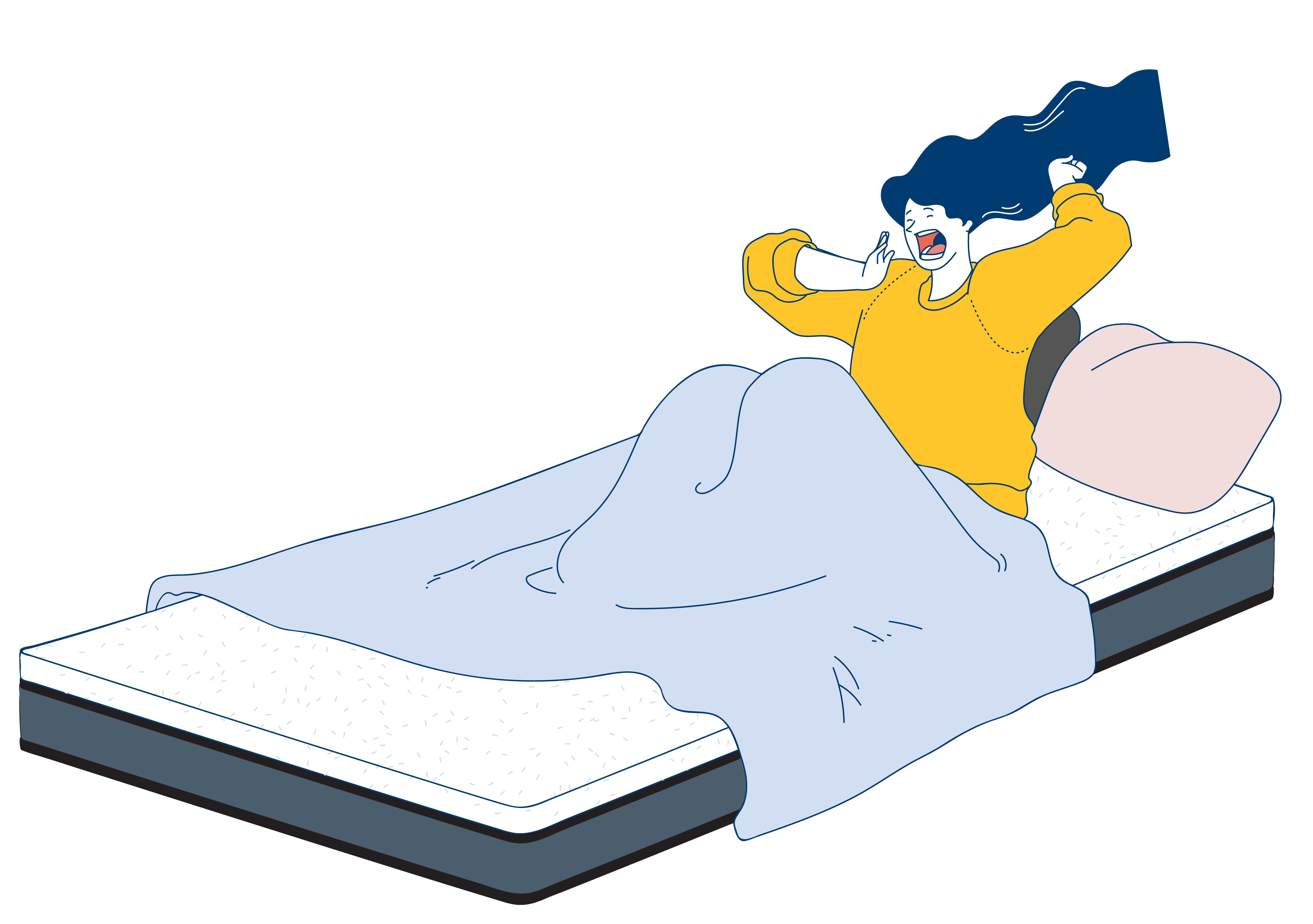Hormones are those things that we know affect our moods and so many other parts of our bodies, but we really don’t know much about. This is why we’ve brought Dr Izzy Smith, an endocrinology doctor and social media influencer, to tell us all about the connection between our hormones and our sleep.
Often when we think about our hormones, we just think of our sex hormones such as estrogen and testosterone. However, in reality we have several different hormone systems that control things from our blood pressure, our appetite, to the strength of our bones and muscles, plus much more.
Hormones are any chemicals that are released by something called an endocrine organ, and then travel through the bloodstream and have an effect on a different organ. Some common hormones you may have heard of are thyroid hormones, insulin, cortisol, and growth hormone, to name just a few.
The Importance of Hormones
As a hormone specialist, I see a lot of products or supplements being promoted for hormone health, when in reality most of these supplements don’t work, and it’s actually simple things like eating a balanced diet, exercise and sleep, that are critical to optimal hormone health.
Sleep is probably one the most under-appreciated pillars for good health. Chronic sleep deprivation is associated with increased risk of heart disease, diabetes and even Alzheimer’s dementia. Sleep deprivation can also play havoc with our hormone health, especially hormones that are influenced and secreted in relation to our circadian rhythm, otherwise known as our 24-hour body clock.
Today we will look at some of the hormones strongly influenced by circadian rhythm or sleep deprivation and why a good night’s rest is so important.
Cortisol
Cortisol is released by adrenal glands and is important in regulating our blood pressure, blood sugar and associated with our “fight or flight” response. Levels peak in the early morning and are at their lowest around 2am.
Too much cortisol is associated with weight gain, insulin resistance, anxiety and other problems and unfortunately sleep deprivation or altering our body clock, can significantly increase cortisol. Even just a few nights of bad sleep will increase cortisol levels and part of why we may feel more emotional or less resilient when sleep deprived.
Ghrelin/Leptin
Ghrelin and Leptin are our hunger hormones. Ghrelin tells our brain that we’re hungry and is highest before meals and lowest after meals. Studies that have administered extra Ghrelin to humans, has shown to increase food intake by 30% and consequently result in weight gain. Leptin, on the other hand, tells us we’re full and helps maintain our way over a period of time (leptin levels drop when we lose weight which consequently makes us hungry and likely part of why it’s so hard to maintain weight loss).
Sleep deprivation can play havoc with the balance of these hormones. Ghrelin levels will increase after just 1-2 nights of poor sleep and why when we’re tired, we can still feel ravenously hungry, despite eating more than enough food!
Insulin
Insulin’s main role is allowing our body to utilise carbohydrates for energy and stabilising blood glucose levels, but is also important for preserving muscle mass and energy storage. Too much insulin however can cause low energy or fatigue and make it difficult to maintain or lose weight.
When we are sleep deprived, our body is less sensitive to insulin, which means we need to produce more insulin for the same effect. Over time this increases the risk of insulin resistance and is part of why sleep deprivation is associated with increased risk of type 2 diabetes, obesity and other metabolic conditions.
Growth Hormone
Growth hormone is important for growth in children. In adults it plays roles in muscle and bone strength, metabolism and even our mood and energy levels. Growth hormone is released mainly at night, and during a period known as deep non-rem or slow wave sleep. Deep sleep usually occurs within the first few hours of sleep but if we go to bed too late, drink alcohol or have too much coffee before bed, we might not get into this deep sleep that is required for Growth hormone release.
Growth hormone is important for everyone, but especially if you’re working hard in the gym or training for your first marathon. It is super important to get good quality sleep, to allow your body to utilise growth hormone for training and recovery, as well as general health.

Good Sleep = Happy Hormones
This is not an exhaustive list and other hormones have also been shown to be influenced by sleep such as testosterone and even our thyroid hormones. Our bodies evolved over millions of years to function optimally by sleeping when the sun went down. Although we now have fancy gadgets called lights and iphones, getting enough sleep is still just as critical to human health and performance and why sleep hygiene, a regular night routine and a great bed, are assets for a happy and healthy life.
About the Author
Dr Izzy Smith is a Sydney based doctor specialising in endocrinology with a particular interest in diabetes, thyroid disorders and hormone health in athletes. Izzy is passionate about utilising exercise, nutrition and stress management to achieve the best outcomes for her patients. She is a popular figure on social media where she shares health and wellness advice as well as her passion for running.



